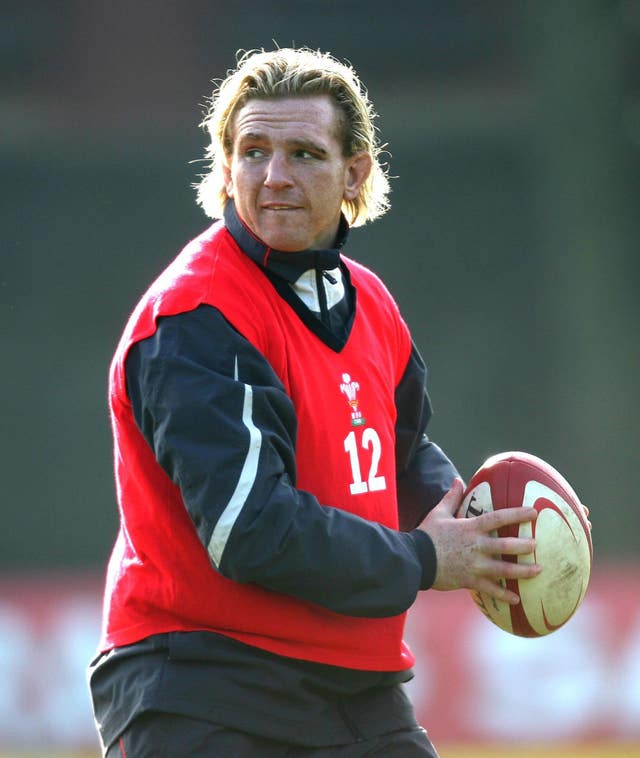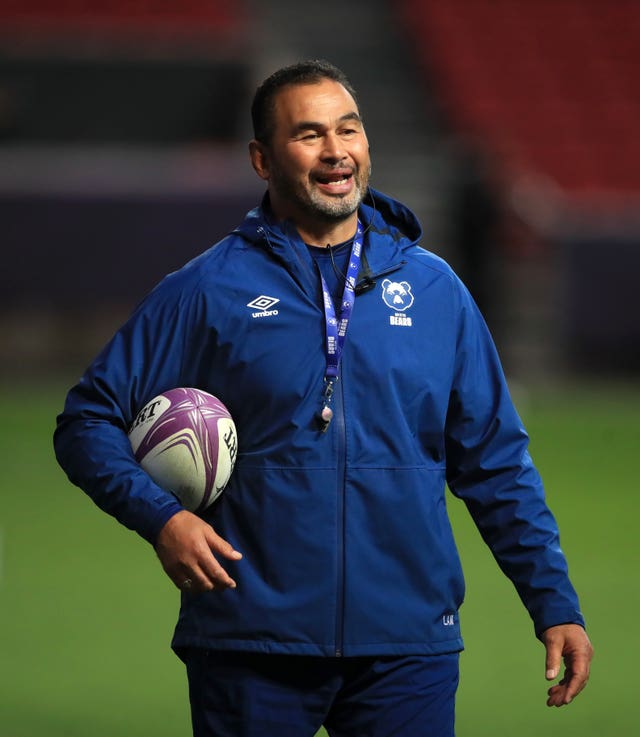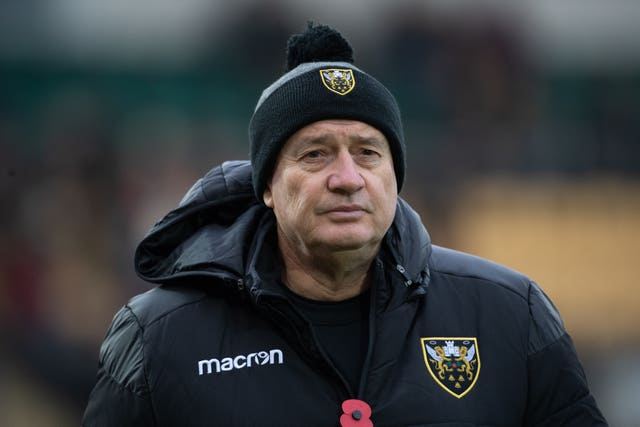Rugby faces a dementia “epidemic” among retired professionals without serious reform of the game, the lawyer leading an action against the sport’s authorities has warned.
Richard Boardman, who is representing an initial group of seven players including 2003 England World Cup winner Steve Thompson, says doing nothing is not an option.
Thompson, 42, has been diagnosed with early onset dementia and says he has no recollection of his part in England’s glorious campaign in Australia 17 years ago.
Boardman says that, regardless of the outcome of the planned legal action against World Rugby, the Rugby Football Union and the Welsh Rugby Union, immediate reform is required to prevent more players suffering in the way Thompson is.
He told the PA news agency: “We believe up to 50 per cent of former professional rugby players could end up with neurological complications in retirement.
“That’s an epidemic, and whether you believe the governing bodies and World Rugby are liable or not, something has to be done to improve the game going forward.
“We can’t do trial by media, so now we’ve announced the litigation we’ve got to take a step back.
“But immediate changes need to be made to the game to protect the current generation and future players. The collisions are just as big now, the speed of the game, the workload, and there’s nothing to suggest what’s happened to Steve and Alix (Popham) and Michael (Lipman) won’t happen to current and future generations.”

Like Thompson, former Wales number eight Popham and ex-England international Lipman are in their early 40s and suffering from early onset dementia and probable chronic traumatic encephalopathy (CTE).
Boardman said the initial group could increase to 10 or 11 former players in total later this week or early next week, and that he is working with a group of 110 ex-players overall, ranging in age from their 20s to their 50s.
The individual claims of the smaller group would be heard first before an application can be made for a larger group litigation order, he said.
“We’re sending the letter before action to the other side (the governing bodies) later this week or early next week and then quite rightly they will have a chance to go away for a number of months and reply,” he added.
“It’s worth emphasising that this is just the opening salvo of the action – there’s a very long way to go, nothing has been resolved, we’ve not even engaged in opening conversations yet with the other side.”
For all concerned, the diagnosis has been devastating.
The NFL reached a settlement worth over half a billion pounds with players who had suffered brain injuries and, while Boardman could not put precise figures on it, he said that in cases of early onset dementia, the care costs were considerable.
“We’ve got a lot of guys in their early 40s, and by the time they get into their 50s a lot of them will be unable to work and will require a lot of healthcare,” he said.
“So the quantum for such claims will be considerable, certainly in the seven figures.”
Boardman insisted the reform proposals would not change rugby as a spectacle if implemented and said: “Every guy involved in this action loves the game, and they love the physicality of it.
“The caveat to that is, since 1995 when the game went professional, the size of the guys has increased, the power, the strength, the pace of the game and therefore the collisions have increased.”
One of the commandments called for players’ unions to be more independent, with Boardman saying it was a “conflict of interest” that over 90 per cent of the Rugby Players’ Association’s funding came from the RFU.

“How can a players’ union receive 90 per cent of its funding from the employer/organisation that it negotiates with?” he said.
“If you take that as a starting point and say, ‘That doesn’t happen with any (other) trade union anywhere in the world in any industry’, then clearly there’s considerable conflict of interest there.
“We absolutely get that the RPA needs to get the funding from somewhere, but surely over 90 per cent of it doesn’t have to come from the organisation that it spends all of its time negotiating with ultimately?”
The group’s 15 commandments criticised the RPA and its chief executive Damian Hopley for failing to prevent Premiership Rugby extending its season to 10 months.
It also said the union had “failed to secure a solitary concession” when player wages were cut by 25 per cent during the suspension of competition at the start of the coronavirus pandemic.
Asked about the aftercare players receive, Boardman added: “That’s something our players are particularly disgruntled about.
“They believe they are left with their broken bodies and minds to try and get by as best they can.
“In fact one of the commandments our guys would like to see is that, upon retirement, each player gets a health MOT to see if there is anything they can get clinical attention and support for.”

The RPA has been approached for comment.
Bristol rugby director Pat Lam, a former team-mate of Thompson’s at Northampton, believes the game is much safer now than it used to be.
“You certainly have empathy for what different people have gone through in the game, but I am just glad that we’ve learnt and tried to develop to make it safer for everybody,” he said.
“For us as coaches, it’s around correct technique and safety of the player right now. There is such an awareness to make sure the player is safe.
“I cringe when people say the game has gone soft and it should go back to the old days.”
Thompson enjoyed a nine-year career with Northampton, making almost 200 first-team appearances and being appointed co-captain.

Saints rugby director Chris Boyd said: “It’s very tragic for him that he was in a situation that he grew up in an era of rugby where the science didn’t show us about these things, really.
“I think it’s an incredibly difficult situation. They are very different environments. The cultures were very different in the clubs through that period of time, and even earlier than that.
“Culturally, the attitude towards a whole bunch of things in the world were quite different then than they are now, including in concussions.
“In the modern environment, because the science is advanced and our knowledge is advanced, I think we are very respectful of looking after head injuries, player safety and those sorts of things.
“Bone on bone training, we do two blocks of 90 seconds a week. That’s full-contact training. In the two-and-a-half years I have been here, we have had one concussion from training, which came from a back running into a prop’s hip.
“We take player safety incredibly seriously, and there are more and more protocols coming in all the time.”
A World Rugby spokesperson said: “While not commenting on speculation, World Rugby has the utmost respect for the wellbeing of all players, including our former players.
“We are unwavering in our commitment to evidence-based injury prevention strategies, and the priority area of concussion education, management and prevention, and act based on the latest available research, evidence and knowledge.”






